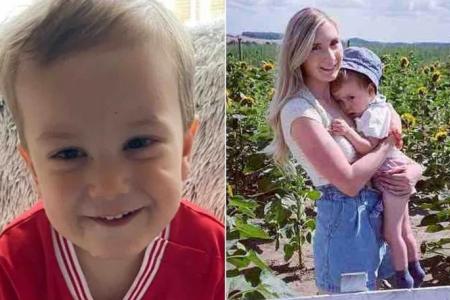Plight of 3-year-old boy with rare genetic condition sheds light on young onset dementia
Losing mental acuity and motor control, including the ability to walk and talk, are conditions commonly associated with the elderly who battle dementia.
In West Yorkshire in the north of England, however, it is an ordeal faced by an unlikely patient – a three-year-old boy, called Joey.
Joey was diagnosed with metachromatic leukodystrophy (MLD), a recessive genetic condition directly caused by a deficiency of the enzyme Arylsulfatase A, which leads to the build-up of fatty substances in the nerves, spinal cord and brain.
The medical prognosis is grim, Joey will progressively lose cognitive and motor skills, and develop dementia. He will probably not live beyond the age of seven, British tabloid The Sun reported.
Britain’s National Health Service estimates that MLD is an inherited condition that affects one in 40,000 in the country, in three broad age segments, namely the late-infantile, juvenile and adult-onset stages.
Joey is a patient of late-infantile MLD, having experienced growth and development typical of other children his age until he was around 18 months old, according to his parents, who reported “a big decline” in his past year.
Ms Katie Walton, Joey’s mother, said she sought medical advice after noticing her son had begun suffering growth deficiencies and had difficulties walking, a motor skill he had picked up after his first birthday.
“His legs started to bend and his feet began to turn outwards,” she told The Sun.
“When we saw the physiotherapist, Joey had lost the ability to sit up too, so (the physiotherapist) knew something was wrong.”
According to the MLD Support Association UK, late-infantile deterioration can occur when the afflicted child is 15 to 24 months old. Conditions that follow including muscle wasting and weakness, progressive loss of vision, impaired swallowing, paralysis, and dementia.
“He can’t speak any more – before he would not stop speaking, he was a right chatterbox – and he now has no body strength,” Ms Walton said.
The group, set up by parents who had infants with MLD, said most children with late-infantile MLD die by age five, but often much sooner.
Ms Walton and Mr Liam Roebuck, her husband and Joey’s father, have been making the most of the time they have with their son with trips, including to popular beachside destination Blackpool.
The pair, both carriers of MLD, are also keen on campaigning to promote MLD screening at birth, with recourse for treatment too late once symptoms appear in children.

In February 2023, the NHS reported that a 19-month-old pre-symptomatic girl was the first to receive gene therapy treatment through what it termed the most expensive drug licensed in Europe at £2.8 million (S$4.85 million) for a course of treatment.
The story of Joey’s case comes as the numbers of those with young onset dementia in Britain – defined as those below the age of 65 – have risen 69 per cent since 2014, according to British charity Dementia UK.
“There is a misconception that dementia only affects older people… we need to do more to dispel this myth,” said Dr Janet Carter, an associate professor of old age psychiatry, at University College London, who led a 2022 study on young onset dementia.
“Lack of crucial support could negatively impact on not just the individual living with young onset dementia, but also the whole family.”
According to Dementia UK, the dementia developed by younger people tends to be a rarer form, and symptoms may include deterioration in skills not related to memory loss as it may be presented in older patients. Younger patients are more likely to suffer worsening vision, language and motor skills.
Ms Walton said: “If it’s picked up early, treatment is available. It’s too late for Joey, but if we can stop more families going through this agony, it’s worth it.”
Get The New Paper on your phone with the free TNP app. Download from the Apple App Store or Google Play Store now

